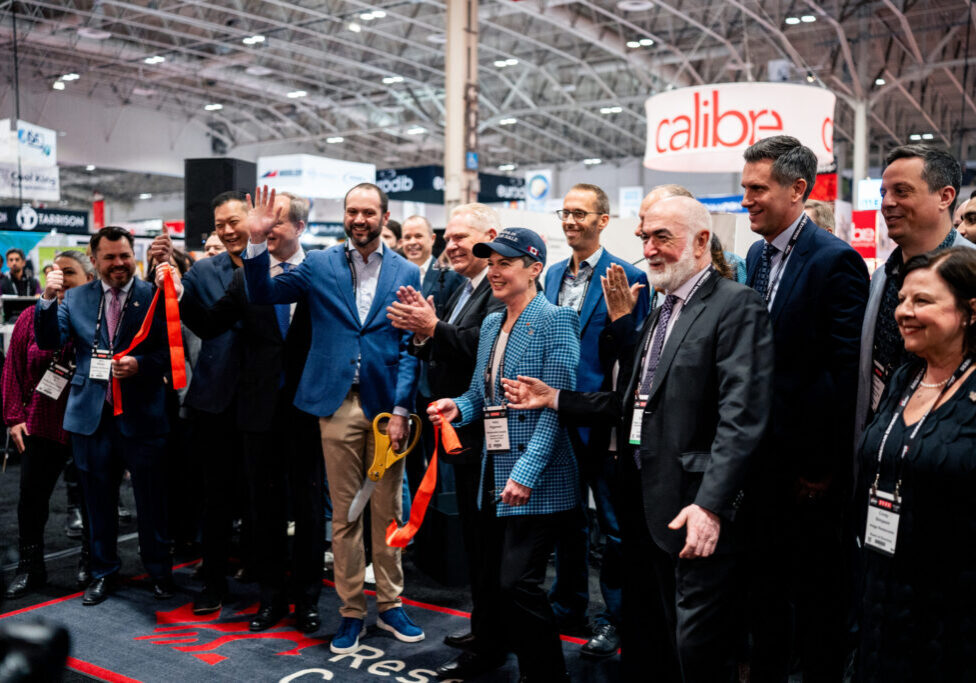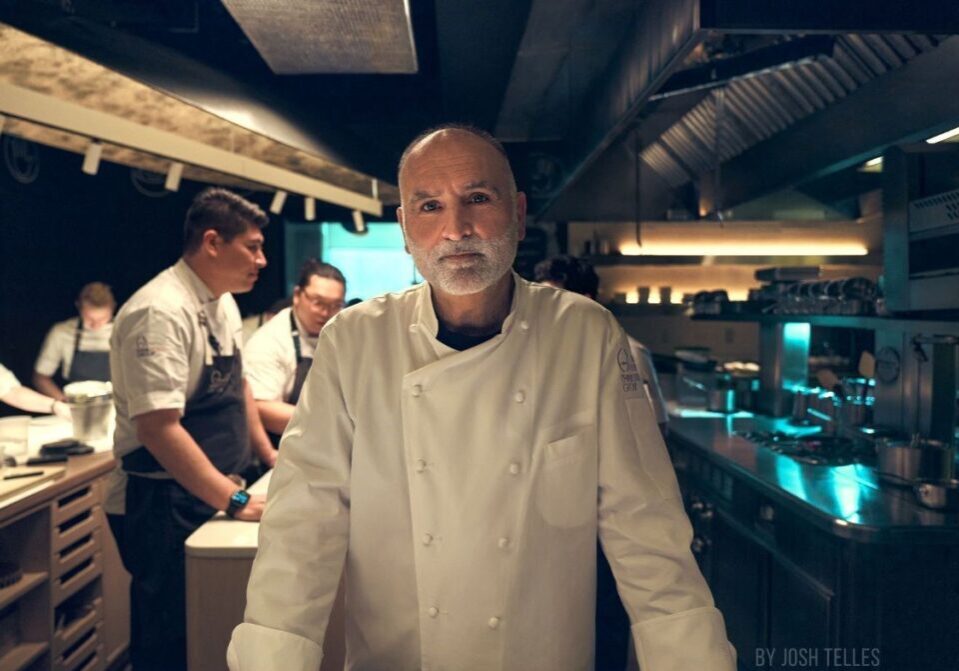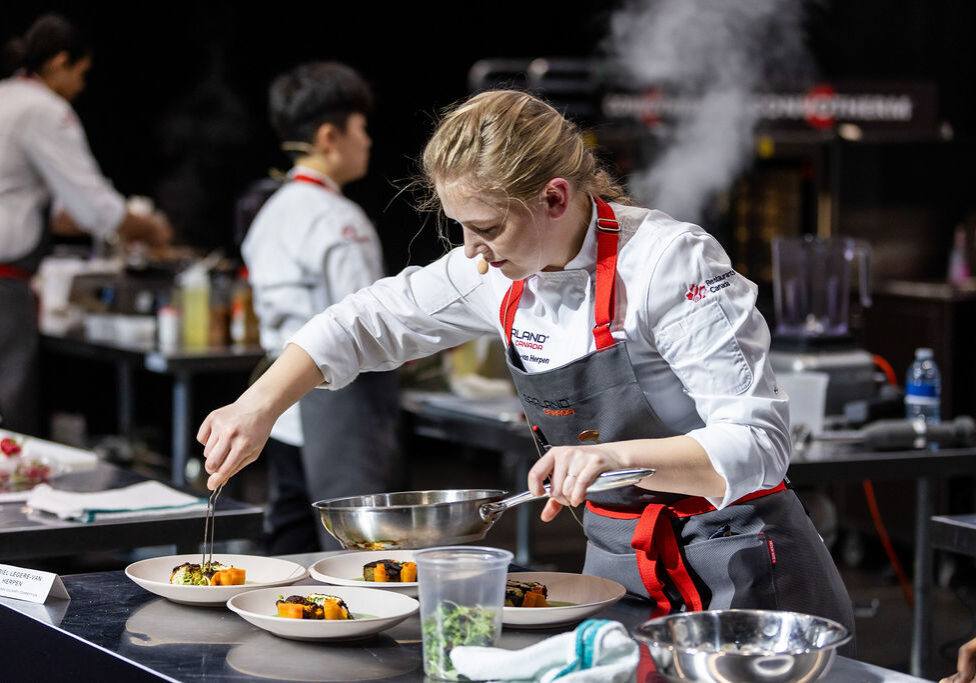Trends Shaping Canada’s Restaurant and Hospitality Industry in 2022
Restaurants Canada shares new food & beverage trends to be showcased at #RCShow set to change how we dine; see how COVID-19 has shifted Canadians’ dining experiences moving forward TORONTO, December 21, 2021 – As COVID-19 continues to significantly impact the hospitality industry, how we dine in 2022 continues to change. Restaurants Canada and the RC Show reflect on the past year and look forward to getting ready for the months ahead. With the theme of REVIVAL in mind, Canada’s largest foodservice and hospitality event has created its list of top food trends and innovations that will shape dining experiences…
Restaurants Canada shares new food & beverage trends to be showcased at #RCShow set to change how we dine; see how COVID-19 has shifted Canadians’ dining experiences moving forward
TORONTO, December 21, 2021 – As COVID-19 continues to significantly impact the hospitality industry, how we dine in 2022 continues to change. Restaurants Canada and the RC Show reflect on the past year and look forward to getting ready for the months ahead. With the theme of REVIVAL in mind, Canada’s largest foodservice and hospitality event has created its list of top food trends and innovations that will shape dining experiences and the restaurant industry in 2022.
From February 27 – March 1, RC Show 2022, aims to reunite the restaurant and hospitality industries and prepare businesses for the revival of the industry through a dynamic in-person and virtual broadcast event. The action-packed, three-day event will bring even more access to the industry’s top brands and suppliers as well as programming from global thought leaders who will be assembled to discuss key industry issues to support the relaunch of the industry.
Here’s a taste of what you can expect at the RC Show and from 2022 dining experiences:
Food & Beverage Trends: This last year, food and beverage trends centred around comfort cuisine, touchless ordering and the innovative technology to bring dining experiences to our doorsteps. It was also a year of awareness and health – both personal and environmental – encouraging consumers and companies to consider what they were eating and serving respectively. With the pandemic continuing to encourage new ways to look at food, here’s what you can expect moving forward:
Buzzless Spirits
Socializing and spending time with others seems to be one of the greatest aspects missed during the pandemic. We miss connecting with others. Such social settings often make us feel inclined to drink because everyone is drinking around us. However, more companies, like Grüvi and Seedlip, are looking to create more inclusive social settings by creating delicious non-alcoholic beverages that can be consumed anywhere, anytime. Alcohol-free drinks are also a staple at Rival House and Lyres, whose range of award-winning crafted non-alcoholic spirits have been able to pay homage to classic favourites without anyone being the wiser. These new boundary-pushing non-alcoholic spirits provide the perfect alternative for patrons looking to stay social without the alcohol count.
Ingredient Awareness
2022 consumers want to know what is in the food they are consuming and they want foods jam-packed with nutrients to boot. They are demanding it. Brands like Ardent Mills are working to bring simple yet quality ingredients into the spotlight with their in-house made breads, pastas and gluten-free pizza dough. Others, like Loop Mission, are using otherwise rejected products to minimize food waste while informing consumers of what is going into their beverages.
Adaptogenic Food & Beverage
If 2021 taught us anything, it’s that we need to focus on our health and wellbeing, both physical and mental. 2022 is shaping up to be a new year of prioritizing healthy, organic and simple but quality food, beverages and ingredients. While most foods tend to emphasize customer’s physical health, there is a growing shift towards foods that also help your mental wellbeing. Beverage brands like Boreal Botanical Brewing are stepping the game up with adaptogenic drinks, beverages that contain ingredients which work to prevent the effect of stress on the body. Even the superfood beetroot is finally joining ingredients front and centre as a nutritional and circulatory health powerhouse in Dairy Farmers of Ontario’s new Grass Fed Organic Beetroot Honey Yogurt.
Food trends back by popular demand: Flexitarian diets, heritage and fusion cooking, virtual cooking classes, fermenting, preserving or canning foods, alternative sugars, mushroom drinks and convenient comfort foods.
Specialization: It’s not news that brands and restaurants have had to adapt to ensure their business stays afloat. Innovative chefs and restaurants were able to pivot to maintain their businesses and keep customers satisfied, with many of these changes set to last well beyond the post-pandemic. Here are a few of those changes that you can expect to see going forward:
Specialty DTC Grocery Goods
Some brands were able to weather the lockdown better than others, by innovating products and their overall business model, adapting diner in-person experiences and finding a way to bring products/experiences directly to consumer’s doorsteps. Canadian-based company Giraffe Foods has found a way to bring restaurant products (in particular custom sauces and signature flavours) directly to diners by helping brands break into the retail space.
Restaurant and Beverage Kits & Subscriptions
Even though indoor dining has opened to the public, not everyone is ready to return to restaurants. Brands like Ascari Group have met that challenge headon and now offer custom kits filled to the brim with house-made fare, curated premium luxury food products and premium spirits and mixes. Award-winning beverage expert and one of RC Show’s Bar Curators Evelyn Chick recently introduced Love of Cocktails, a place for people to connect, enjoy fun virtual cocktail making sessions and order customized cocktail kits to their home. Others such as Mildred’s Temple Kitchen, General Assembly Pizza and Chef Drop have found a way to innovate and create premium meal kits from top chefs and restaurants, recreating the full indoor dining experience from the comfort of any home kitchen.
Sustainability: The pandemic saw diners proactively seeking out brands that consider their carbon footprints and their impact on the environment. That level of consumer awareness will not go away anytime soon as consumers continue to make food and beverages choices which are environmentally conscientious.
B2B Waste Reduction Platforms
Consumers and brands are finally working together in an effort to reduce food waste and make environmentally-friendly dining decisions. Apps such as Too Good to Go give customers the option to connect with restaurants and save surplus food from going to waste. RESTOVERT/ RESTOGREEN aims to create an eco-responsible catering network, while brands like Alfred Technologies, work directly with companies and restaurants to prevent inventory waste. Other brands, such as Waterwise, are tackling different elements of the industry’s carbon footprint, focusing on both consumer and environmental health through sustainable, custom water purification systems.
Meal Upcycling
While some brands are working directly with consumers to reduce food waste, others are reworking ingredients gone to waste at their source to create completely new meals. Upcycling and food scrap cooking are leading the charge of reducing food waste by contributing to a circular economy. Brands such as Trendi are using “ugly” foods that would have been thrown away to create meal kits, and Upcycled Food Fest is encouraging restaurants to innovate and bring the conversation surrounding food waste to the forefront by incorporating upcycled ingredients into their menus.
Innovative and Responsible Packaging
Packaging is also starting to get a facelift with diners moving away from traditional single-use plastics to more sustainable alternatives. Consumers are looking for brands that consider their carbon footprint at every step from food production to packaging and distribution. Companies like Calibre and Evanesce are turning to biodegradable and compostable materials for packaging, while ensuring everything remains recyclable.
Farm-to-phone
Restaurants and food companies are having to adapt to bring the dining experience to the customer’s front door. Another way companies have evolved to meet this demand is by bringing the freshest produce from farm to doorstep, through virtual farmers’ market apps such as Bae Greens or brands such as Goodleaf, who work to bring organic and vertically-grown greens directly to the end-user all-year round.
Technology: Technology was crucial to the restaurant and hospitality industry during the pandemic, as touchless ordering, digital menus and food delivery became staples to keep people safe. That won’t change in 2022.
Robot Retail
Robotics and AI have been making strides across every industry and the restaurant and hospitality sectors are no exception. Robot retail is making its way into our dining experiences – from sanitation and disinfection to serving and hosting, to ensure everyone’s safety. Brands like GreenCo Robots are leading the charge of robotics-led dining experiences, bringing innovative and high-tech solutions to problems brought about by the pandemic.
Contact-free Everything
The hospitality industry had to adapt and fast, making services contactless at every touchpoint. QR codes, touchless menus and payment options are just some of the new procedures that brands have had to adopt. But has this added too many steps? Brands such as BarConnect and Mealsy have answered that call with tools designed to create a safer space, reduce food waste, lower labour costs, increase table turnover and provide faster service all at the same time, as well as help keep companies and customers minds at ease with automatic and digital vaccination certification options.
365 days of Alfresco dining
While some are choosing to remain at home, many continue to flock back to restaurants to reconnect with friends and enjoy long awaited in-person dining experiences. To help alleviate the stresses of reduced indoor capacities on restaurants and ease customers back into dining out again, restaurants and bars are turning to outdoor dining and businesses such as Unichairs Inc. and Pop Up Street Patios to help turn their limited outdoor spaces into stunning temporary patios. To combat the colder weather, brands such as Bum Contract and Mensa Heaters offer heating solutions that turn even the coldest Canadian climate into a cozy alfresco dining experience.
You can see these trends and much more at the RC Show 2022, Feb 27 – Mar 1, a place for the industry to come together to REVIVE THEIR BUSINESS like never before. For more information on the show, visit www.rcshow.com.
Follow us and the conversation on social: #RCShow #FeedingtheRecovery @RestaurantsCanada
Media Contacts:
Lisa Raffaele │ 647.896.0743 │ lisa@bubblegumcanada.com
Dena Gouweloos │ 647.825.3927 │ dena@bubblegumcanada.com
Follow us and the conversation on social: #RCShow #FeedingtheRecovery @RestaurantsCanada
About RC Show – since 1944
Canada’s leading foodservice and hospitality event showcasing cutting-edge products, pioneering people and transformative ideas. Attendees can shop, taste, learn, connect and grow their business with multiple days of business-building action, including featured areas, competitions, workshops and RC Hospitality Week events tailored to educate, motivate and lead the industry. RC Show includes the latest trends, a dynamic selection of innovative products, and influential speakers assembled from around the globe, designed to help operators grow their businesses. An annual event not to be missed. Learn more at www.rcshow.com
About Restaurants Canada
Restaurants Canada is a national, not-for-profit association advancing the potential of Canada’s diverse and dynamic foodservice industry through member programs, research, advocacy, resources and events. Before the start of the COVID-19 pandemic, Canada’s foodservice sector was a $93 billion industry, directly employing 1.2 million people, providing Canada’s number one source of first jobs and serving 22 million customers across the country every day. The industry has since lost hundreds of thousands jobs and could lose as much as $44.8 billion in sales in 2020 due to the impacts of COVID-19. www.restaurantscanada.org



